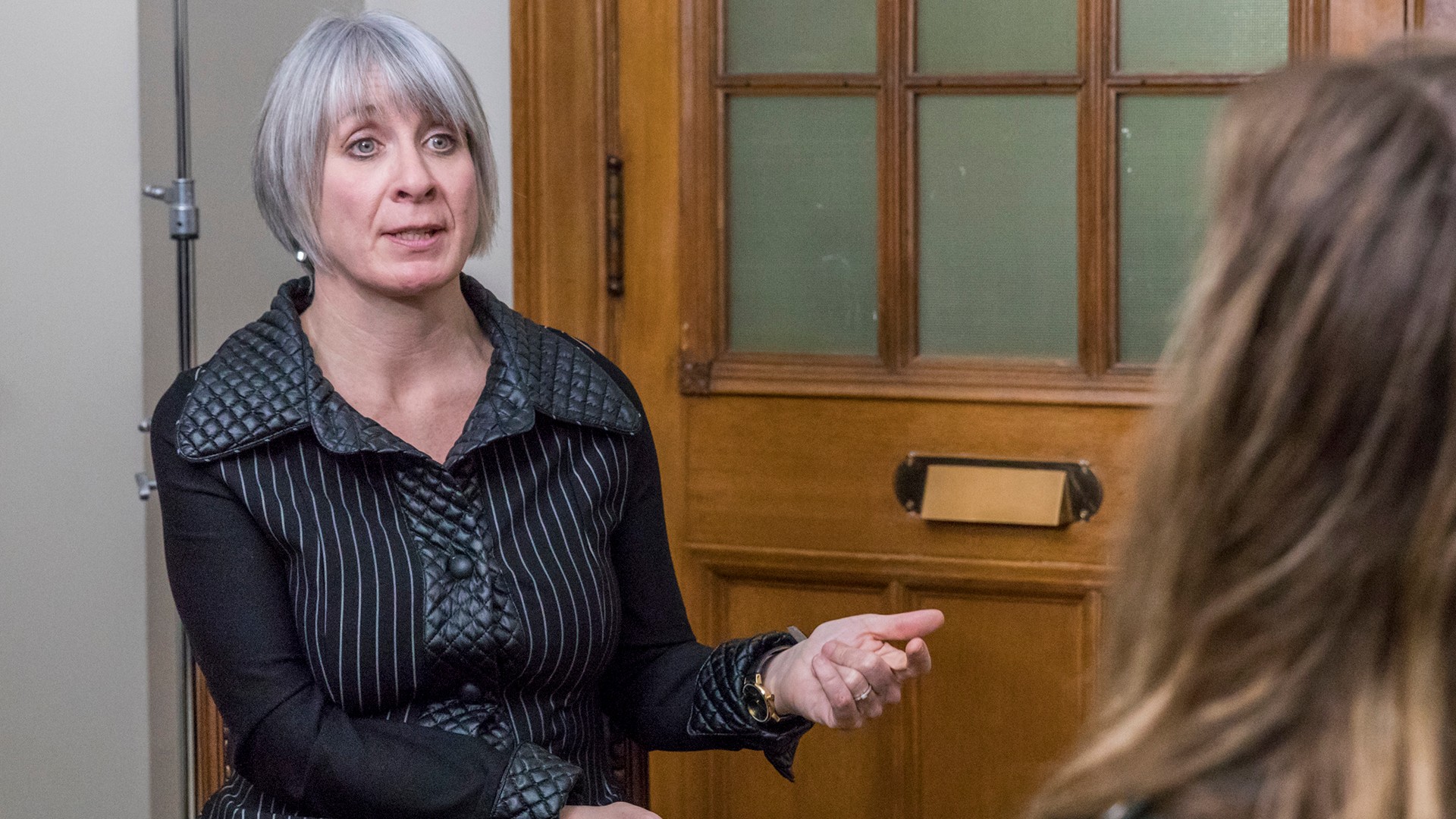Photo of Drayton Dwayne Preston via Facebook
A 20-year-old man named Drayton Dwayne Preston was sentenced to 26 months in prison in a Calgary court on Tuesday for sexual assaulting a teenage girl. Preston broke into the 17-year-old girl’s bedroom, raped her, and returned to sexually assault her twice in the early morning of July 30, 2016 following a party, according to an agreed statement of facts reported by CBC. During the attack, the victim was at times passed out drunk. Preston recorded video of the assault and took photos of her genitalia on her phone. Then, he posted these on Facebook.Preston pleaded guilty to one count of sexual assault. He also was originally charged with voyeurism, but that charge was dropped.Later, in a pre-sentence psychiatric evaluation presented by the Crown in court, Preston talked about “feeling sorry for himself."The case has prompted international outrage, with many wondering how it’s possible that a seemingly clear-cut case—in which there was photographic and video evidence—could result in such a short sentence.Sexual assault cases are notoriously difficult to prosecute, with only one in 10 that are reported to police and substantiated in Canada resulting in a conviction. This reality, combined with the fact that testifying in court is often re-traumatizing for victims, could explain why plea deals with light sentences are accepted. When tried as an indictable offence in Canada, the maximum sentence for sexual assault is 10 years. However, pleading guilty can result in a lighter sentence because it saves the court resources and the victim from going through a trial.Nonetheless, these outcomes are a slap in the face, say victims’ advocates.“I’m surprised the Crown actually agreed on this sentence… It’s not in-tune with the devastating impact sexual violence has—it’s not even close to it,” Glen Canning, the father of Rehtaeh Parsons, told VICE.The Rehtaeh Parsons case is a known example of how police and the Canadian justice system fail sexual assault victims. Canning’s daughter died at age 17 in hospital following a suicide attempt, after four boys allegedly sexually assaulted her at a party in 2011 and distributed a photo of the attack. She was 15 at the time. The photo was widely circulated at Parsons’ school, and she was subject to intense bullying. In 2014 and 2015, two men were convicted of child pornography charges for taking and sharing the photo and sentenced to probation. One of the men received a conditional discharge, meaning that his conviction won’t show on his criminal record unless he violates probation; the other’s conviction will only be on his record for five years after conviction. Sexual assault charges were never laid. An independent review later found errors in the police’s and the Crown’s handling of the case.Canning said the outcome of Preston’s case is disturbing.“All I’m thinking is that this guy is going to do something like this again,” Canning said.Preston’s sentencing judge, Gord Wong, accepted a joint Crown and defence submission for the 26-month prison term, but suggested that several factors could have warranted a harsher sentence. Preston will also be on the sex offender registry for 20 years.“You knew she was in no position to consent, but you decided to take advantage of the situation,” Wong said when handing down the decision. "You're not satisfied with committing this sexual offence, you go ahead and use someone else's phone to take photos… send it back to yourself and post it to Facebook.”Preston, who was under house arrest prior to his sentencing, also failed to attend court twice and breached the conditions of his arrest several times. Canning said the fact that Preston documented the attack makes it seem as if he was gloating.”It was almost like he was saying ‘I’m raping someone,’ but on top of that, ‘I’m so glad that I am’—to do that, to actually almost celebrate it like he did,” Canning said. “To turn around and give him 26 months, that’s terrible.”Barb MacQuarrie, community director at Western University's Centre for Research and Education on Violence against Women and Children, told VICE the case is another example of the Canadian justice system falling short for victims of sexual violence.
Canning said the fact that Preston documented the attack makes it seem as if he was gloating.”It was almost like he was saying ‘I’m raping someone,’ but on top of that, ‘I’m so glad that I am’—to do that, to actually almost celebrate it like he did,” Canning said. “To turn around and give him 26 months, that’s terrible.”Barb MacQuarrie, community director at Western University's Centre for Research and Education on Violence against Women and Children, told VICE the case is another example of the Canadian justice system falling short for victims of sexual violence.
Advertisement
Advertisement

Advertisement
“We really have to have a long, hard look at our justice system’s response to sexual violence and need to question it at many, many levels about its ability to deliver justice to survivors,” MacQuarrie said.MacQuarrie referenced how many survivors never see their abusers convicted in court, but even when they do—as in this case—that ”in proportion to the crime committed, [the sentence] seems quite inadequate.”“All I can think is that our justice system has no idea of the impacts of a sexual assault like that,” MacQuarrie said. She said having photos and video distributed via social media “can only magnify” that impact for the victim.“This could completely destroy her and leave her with all kinds of mental health issues,” Canning said of Preston’s victim.MacQuarrie would like to see a significant inquiry that would look at all aspects of how the justice system is failing sexual violence victims. This would include, she suggested, speaking to victims, their support people, lawyers, and judges and taking “a considered, measured approach” that acknowledges that “things aren’t good, and things have to change.”“In theory, our justice system is about rehabilitation,” MacQuarrie said. “Two years is not going to rehabilitate that man… He is going to continue to be a danger to society.”
